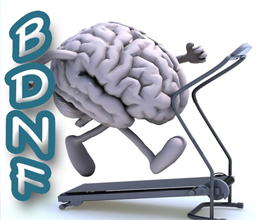Wednesday, 22 February 2017
To Retain Information Better, Wait a Few Hours, Then Go for a Run!

The study that I want to tell you about today was done by Eelco V. van Dongen and his colleagues and is entitled “Physical Exercise Performed Four Hours after Learning Improves Memory Retention and Increases Hippocampal Pattern Similarity during Retrieval.”
This study’s findings can be summed up as follows: if you have just made a new mental association and want to remember it better, wait a couple of hours, and then go do some exercise! In van Dongen’s study, three groups of subjects performed a memory-encoding task. One group performed exercise immediately after, one did so four hours after, and the third did not perform any exercise at all. When the three groups were tested for their retention of the encoded memory two days afterward, the group that had exercised four hours after the task showed the best retention among the three groups.
As van Dongen and his co-authors describe in this article, the persistence of long-term memory depends on consolidation processes that in turn appear to depend on neuromodulating substances such as dopamine, noradrenaline, and brain-derived neurotrophic factor (BDNF). If the brain does not release such substances shortly after it learns something, that something will be quickly forgotten. Several recent studies have shown that in humans, physical exercise stimulates the release of such consolidation factors. Van Dongen’s study thus seems to confirm the validity of this phenomenon and suggests some practical applications in educational settings.
I was going to end this post there, but then I remembered another study, by Sama F. Sleiman and her team, entitled “Exercise promotes the expression of brain derived neurotrophic factor (BDNF) through the action of the ketone body β-hydroxybutyrate”. This study explains how Sleiman and her colleagues determined that a substance that forms in the brains of mice when they exercise intensely is the precursor to BDNF, which encourages the development of new nerve cells in the hippocampus, and thus the encoding of new memories.
![]() To remember something better, wait, then exercise.
To remember something better, wait, then exercise.
![]() Physical Exercise Performed Four Hours after Learning Improves Memory Retention and Increases Hippocampal Pattern Similarity during Retrieval
Physical Exercise Performed Four Hours after Learning Improves Memory Retention and Increases Hippocampal Pattern Similarity during Retrieval
Memory and the Brain | No comments







